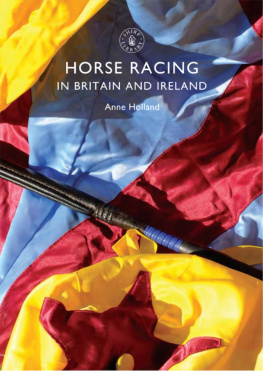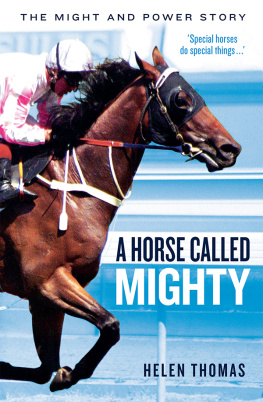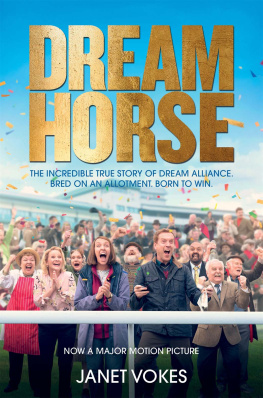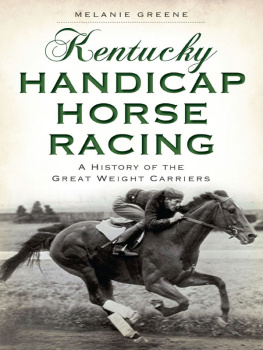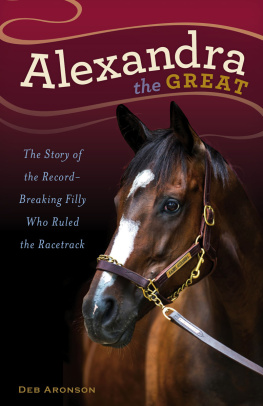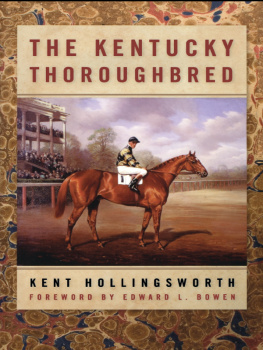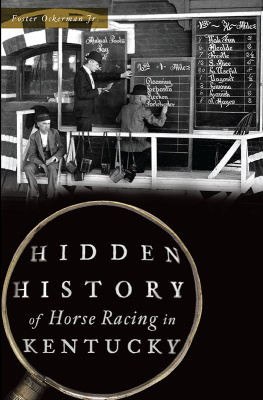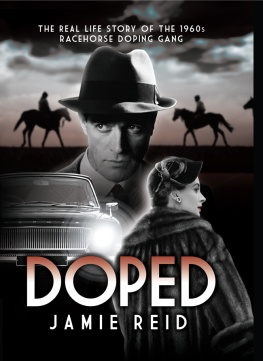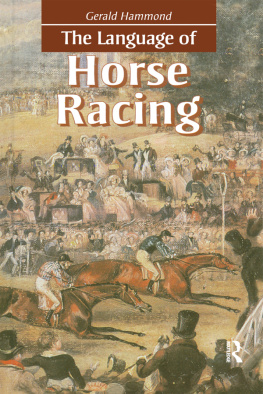

Table of Contents
... pure-bred horses And solid men, for all their passion, live But as the outrageous stars incline...
WILLIAM BUTLER YEATS
IN MEMORY OF MAJOR ROBERT GREGORY
More praise for RUFFIAN
Movingly and powerfully tells the story of the legendary filly... An unusually vivid account of the world of racing.
New York Daily News
There is not a wasted word or a false step in this exciting book. It would make a great movie.
Los Angeles Daily News
Her painstakingly researched account takes readers from the moment of Ruffians birth to the first workout that revealed her greatness, to the grim moment when Mr. Janney decided to end her suffering.
The Baltimore Sun
Schwartz eloquently captures the spirit and style of this undefeated filly who beat all comers save death.... This is an exhilarating yet sad tale of the thrills and fears of horse racing. Highly recommended.
Library Journal
ACKNOWLEDGMENTS
I was able to write this book, in this way, largely because so many people spent so much time with me, remembering.
My thanks go first and foremost to Ruffians human family: Frank Y. Whiteley Jr., Jacinto Vasquez, Mike Bell, John Squeaky Truesdale, the late Yates Kennedy, Minnor Massey, Vince Bracciale Jr., and Barclay Tagg. Dan Williams died in 1977, long before I began this project. He was the only person from Ruffians inner circle whom I was not able to interview.
Many other people contributed to this work. Some of them appear on these pages and some do not, but all deserve my thanks: the late Stuart and Barbara Janney, Jackie Peacock Sanders, Frank Ritz, Eleanor Blades, Jim Prendergast, David Whitely, Ric Martin, Nick Lotz, John Sosby, Walter Kaufman, Dell Hancock, Buck Jones, Charlie Sullivan, Marshall Cassidy, David Johnson, Alex Harthill, William Reed, Manuel Gilman, Pat Lynch, Sam Kanchuger, Lorenzo Rooster Carlos, Eddie Drakeford, Hamp Beaufort, Jarboe Talbott, LeRoy Jolley, Braulio Baeza, Frank Calvarese, John Spampinato, Jorge Velasquez, Joanne Norman, Jack Wilson, Tony Alonso, and John Esposito.
Thanks also to all the people who worked in the NYRA Press Office between 1986 and 1990, to the Gulfstream Park Press Office, and to Thoroughbred Racing Communications.
Past issues of The Blood-Horse and The Thoroughbred Record were invaluable sources of information, and I am deeply indebted to Fred Grossman and the Daily Racing Form for giving me access to past issues of that paper which were not available anywhere else, and for granting me permission, in a number of different scenes, to use several lines of dialogue that were lifted directly from its articles.
I read the work of many fine turf writers and am particularly grateful to several who added their personal recollections to my files: Jack Mann, Jack Will, Russ Harris, Bill Finley, Joe Hirsch, Bill Nack, and the late Bill Rudy.
I benefited a great deal from the knowledge and expertise of Steve Haskin, Bob Curran, and John Lee. At various stages of my work, each of them read and commented on all or portions of the manuscript, pointing out my errors and offering many useful suggestions.
Family and friends always encouraged me, and many helped out in unique and specific ways: Charles Schwartz, Susan Bektesh, Gene and Ellie Landesman, Ellen Millman, Joey Gordon, Jack Feher, Marshall Messer, Becky Saletan, Dennis Paoli, Laura Kramer-Carini, Carol Sternhell, Pat Mills, Phyllis Frus, and Billy Mass.
Finally, in addition to Ruffians family, there were two people who made it possible for me to do this book the way I wanted:
Ellen Sherman, an extraordinary friend, who has managed over the yearsin addition to her own writing, marriage, two children, and a move to another stateto read virtually every word of every draft of everything I have written, and who seemed to understand my vision of Ruffians book even before I myself could clearly articulate it;
And Bob Wyatt, an extraordinary editor, who has helped me so much as a writer, has always made me feel welcome, and has believed in this bookand in mefrom the very beginning.
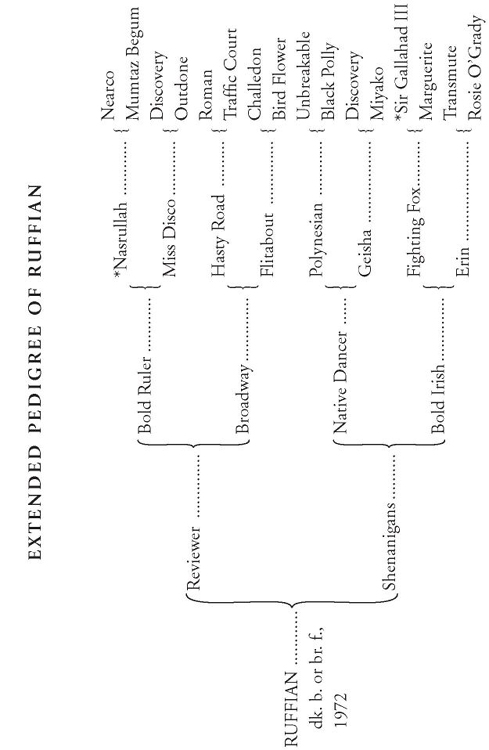
PART ONE

Buck Jones yawned and looked at his watch. It was funny how time went late at night. He had started his shift at midnight, relieving Louis Otero, and all he had done since then was pace up and down the shedrow or lean against the wall and sip coffee from his thermos. Yet it was already half past three.
He didnt even have a radio. This was Frank Whiteleys barn, and Whiteley didnt allow radios. Buck could understand that. Hed been a horseman himself for almost twenty years. The boss wasnt paying him to listen to music. Horse watching was a job. Especially in a case like this. The President, the Pope, and the Queen of England all rolled into one couldnt have gotten more attention than this filly had been getting the last few weeks, ever since they had announced the Match.
Buck looked over at her. She was awake now, alert in her stall, ears pricked forward.
Youll get your breakfast soon enough. Buck smiled and tugged at the belt of his uniform. He was a big man, and hed put on a few more pounds since becoming a Pinkerton. He could appreciate the fillys appetite.
She wasnt fidgeting or fussing, though. She never did. But there was something about herBuck had been trying to figure it out all week. He had watched her before, when she raced, but only from the paddock or the stands, like everyone else. Up close, these past few nights, hed begun to realize what it was: She had the uncanny ability to seem calm and excited at the same time. Perfectly at ease, and yeteager, intense, wired. He had never seen that in a horse before. Or, for that matter, in a person, either.
The filly stretched out her neck to catch the summer breezes drifting over from the track. Buck thought of the crowds that cheered her every time she ran. If only they could see her now. She was a towering filly, and had always looked magnificent on those bright afternoons when she raced, her near-black coat flashing spears of sunlight as she paraded to the post. But at night, with moonlight filtering down on her, she was even more striking. Silvery, shining, radiant, like something in a dream. Only she wasnt a dream. She was real.
That was hard to believe sometimes, especially if you opened up the paper and studied her form. It wasnt just that she was undefeated: She was perfect. At every point of call, in every race, she had been in front. She didnt always break well, but within a step or two she invariably gained the lead. Five times as a two-year-old, and five times again so far at three. What was even more amazing, she had done it at every distance from a sprint to a mile and a half. Always first. Always on the lead. Perfect.
At the other end of the barn Whiteleys regular night watchman, Hamp Beaufort, was busy getting ready for the four A.M. meal. He muttered softly to himself as he walked through the barn pouring oats into the feed tubs. One by one all the horses poked their heads out of their stalls, nickering and coming to life. Breakfast, they said up and down the line. Morning. Another day. They knew.
Next page

